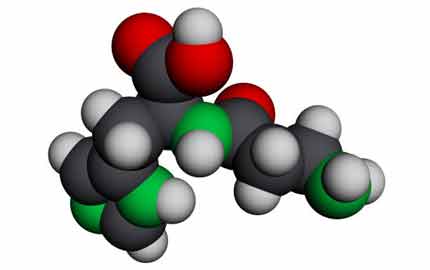You may have heard of CarnoSyn or you may even be looking for a product that contains this essential amino acid. In this article, you will learn about the benefits and functions of Carnosine and what it has to offer. Learn about this essential amino acid, Beta-alanine, Histidine, and anti-glycation. In addition, you will also find out what the science behind this compound is.
L-Carnosine

L-Carnosine is an amino acid that boosts brain function and health. It is necessary for the healthy functioning of mitochondria in the cell membranes, which pump out ATP, the body’s primary energy source. Twenty percent of the ATP is found in the brain. L-Carnosine inhibits glycation, a process that lowers mitochondrial efficiency and damages cells. The resulting oxidative stress causes the development of diseases such as Alzheimer’s, skin wrinkles, and hardened arteries.
Beta-alanine
If you’re looking to build more muscle, try adding a dose of beta-alanine to your regular diet. Beta-alanine is an important ingredient in protein powders. It works best when consumed in a high-intensity environment, so look for a supplement that contains it. Beta-alanine is also helpful in other supplements, including glutamine, whey protein, and creatine.
Histidine
Histidine is an amino acid that supports the synthesis of carnosine in muscle cells. It binds to lactic acid and delays muscle fatigue, improving recovery. Histidine in Your Complete Guide to Carnosine has all the necessary information you need to know about carnosine. Learn the science behind carnosine. Read on to discover more about this amino acid and its benefits. You will be amazed at how important carnosine is to your body.
Anti-glycation
Carnosine is a key component of red meat and fish, and it exhibits powerful anti-glycation and antioxidant properties. This amino acid scavenges radicals and sugar aldehydes, and protects against glycation-induced protein alterations and decreased enzyme activity. Researchers have shown that carnosine inhibits glycation by protecting a protein’s enzymatic activity and structure. When it interacts with glyceraldehyde 3-phosphate, a glycation product is produced, whereas carnosine prevents glycation by stabilizing the protein.
Anti-oxidation
The two most widely used ways of determining the role of carnosine in the body are through its antiglycating and anti-crosslinking properties. Both of these functions contribute to the antioxidant effect of carnosine and block the formation of harmful oxidants in biomolecules. These antioxidant effects are responsible for a host of biological effects, ranging from cellular damage to the onset of cancer.
Muscle performance
The benefits of carnosine supplementation are numerous. Carnosine is an amino acid found in the muscles of running and hunting animals. It is present in higher concentrations in these animals’ muscles than in humans. During intense exercise, carnosine contributes to acid-base balance. In this study, we investigated the effects of carnosine supplementation on the performance of muscle fibers and their distribution. We found that supplemental carnosine improved the endurance and time-to-exhaustion times in a high-intensity cycling study.
Conclusion:
Several studies have shown that carnosine is beneficial for heart health and may regulate cellular calcium levels and prevent artery hardening. However, there is still limited evidence regarding carnosine’s effects on obesity, diabetes, and prediabetes. The supplement has been shown to decrease blood sugar in obese individuals, but this benefit has yet to be verified in large studies. However, it may reduce inflammation and improve blood flow in the body.

